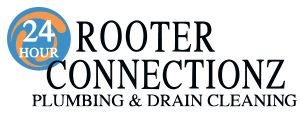Let the Sun Shine In!
You may think you’ll keep heat in by covering your windows with thick drapes that act as an extra insulator against the cold outside. This is true — at night. But on a sunny afternoon, you can raise the temperature indoors naturally if you let UV rays inside. Open those drapes and absorb free heat from the sun.
2. Close Your Fireplace Damper
It’s a common issue — homeowners build fires, but then they forget to close the damper after the logs have turned to ash. Remember to perform this simple task when your fireplace cools, or else the heat from your furnace will escape out your chimney.
3. Turn Down the Temperature on Your Water Heater
Your water heater can account for up to 18 percent of your heating bill. That’s a lot. But you can save by turning down the temperature to 120 degrees Fahrenheit. You won’t pay more than you have to for hot water and you won’t scald your hands: win-win!
4. Check Weatherstripping
If the weatherstripping around your front door is torn, you’re letting out heat and allowing an unwelcome draft in your entryway. It’s easy and cheap to replace worn-out weatherstripping around your doors, so add it to your weekend to-do list.
5. Don’t Overwork Your Heating System
You might love walking into a home that’s a toasty 74 degrees, but expect to pay significantly for this comfort. If you’re serious about using energy-saving tips to line your pocket, then don a sweatshirt and turn the thermostat down to 68.
Not only will you pay less to the gas or oil company, you’ll preserve the life span of your furnace, ensuring it doesn’t have to work overtime on colder days.
6. Use a Humidifier to Moisten the Air
If you live in a dry climate, a humidifier can help you feel warmer without turning up the thermostat. Moist air feels warmer than dry air, so put a humidifier in your bedroom at night to increase comfort.
7. Schedule a Furnace Tuneup
Most importantly, make sure your furnace is operating at maximum efficiency. That’s one of the most effective energy saving tips, because it means you’re going right to the source of the heat in your home, ensuring small problems are identified and repaired before they contribute to whole-system inefficiencies or breakdowns.
Trust Connectionz Plumbing, Heating & Air to replace furnace filters, assess your unit’s function and make necessary repairs before the cold weather sets in. You can also trust our team for additional energy-saving tips to keep your home warm and your heating bill down this winter.

